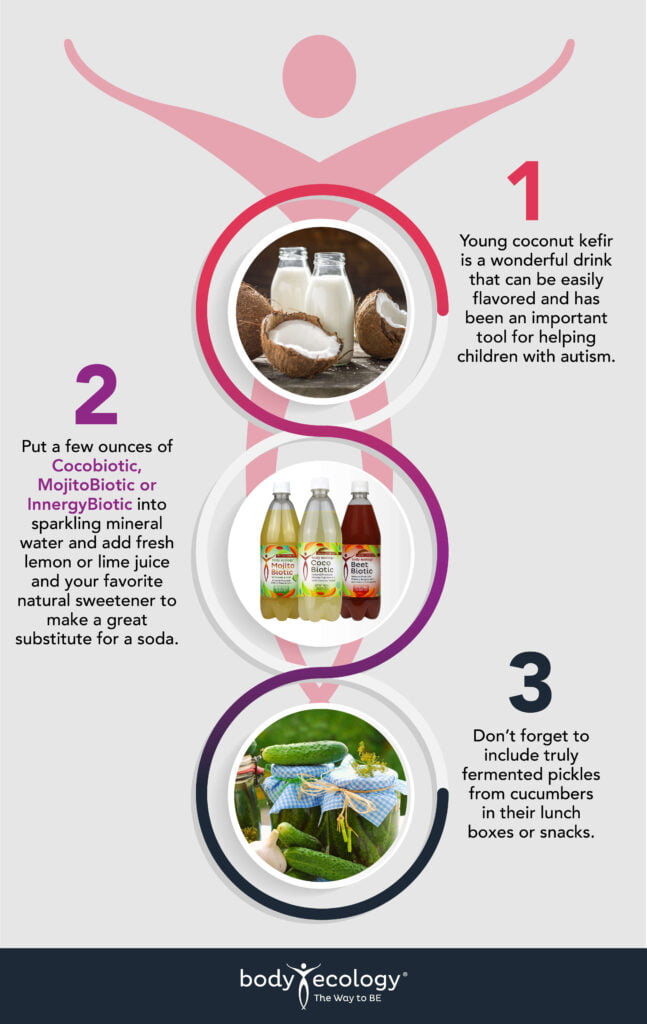Are you unknowingly damaging your child’s brain?
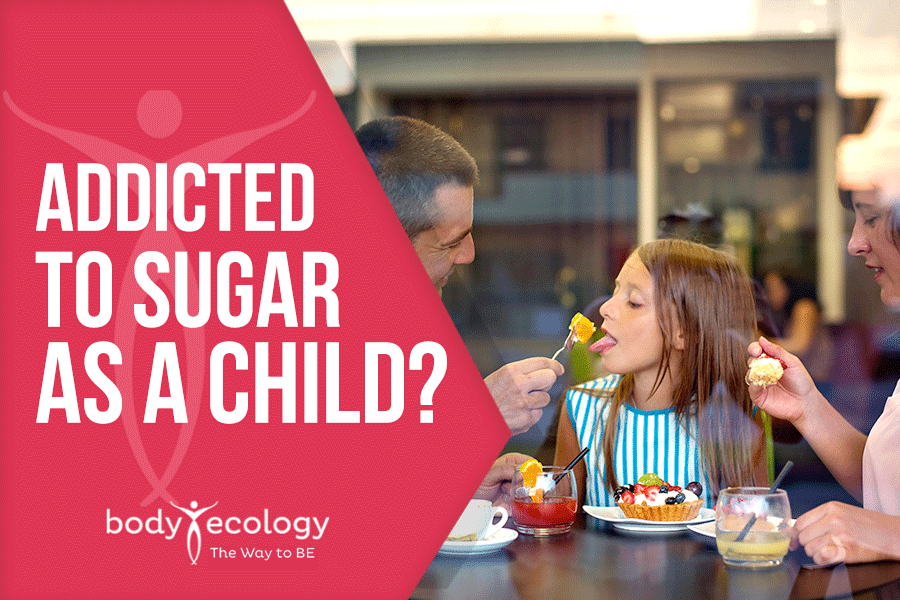
From sugary breakfast cereals to lunch boxes featuring processed meals to dinners followed by desserts brimming with sugar, it’s no surprise that children have the highest added sugar consumption.
And, while we all know that sugar isn’t good for us, we continue to supply it en masse to our little ones.
Why?
The smiles on their faces. The tantrums to get what they want.
Yet, our surrender to short-term happiness and instant gratification for our children may be costing them even more than we originally thought on a long-term basis.
The Study: Daily Sugar Intake During Adolescence May Inhibit Adult Brain Performance
New discoveries found within a collaborative study between University of Georgia team leader, Emily Noble, and a research group from the University of Southern California show that an adolescent lab rat who consumes sugary beverages daily may struggle with learning and memory capabilities as an adult.
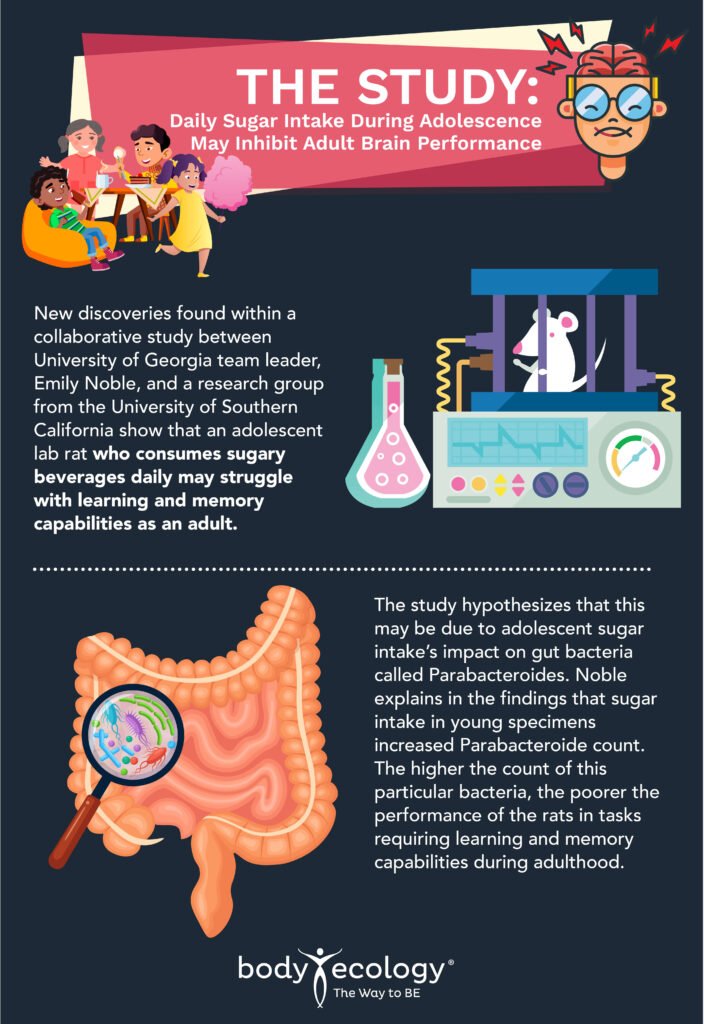
The study hypothesizes that this may be due to adolescent sugar intake’s impact on gut bacteria called Parabacteroides. Noble explains in the findings that sugar intake in young specimens increased Parabacteroide count. The higher the count of this particular bacteria, the poorer the performance of the rats in tasks requiring learning and memory capabilities during adulthood.
The study further strengthened this hypothesis when the same inhibited brain effects occurred when these bacteria were enriched in rats who never consumed sugar at all.
This study is a crucial “word to the wise” for parents who continue to allow their children sugary beverages and meals without restriction. Luckily, research like this warns us to greatly minimize sugar in our children’s diets. Fortunately, excellent sugar-alternatives that provide the sweet taste but not the sugar.
Sugar Intake Recommendations For Childhood Nutrition
Fewer than 5% of a child’s daily diet should contain added sugars. This amounts to approximately 5-7 teaspoons of sugar at a maximum for children above 4 years of age. Meanwhile, it’s recommended that children under 4 years of age shouldn’t consume any added sugars at all. But 5-7 teaspoons of sugar? That is still far too much!
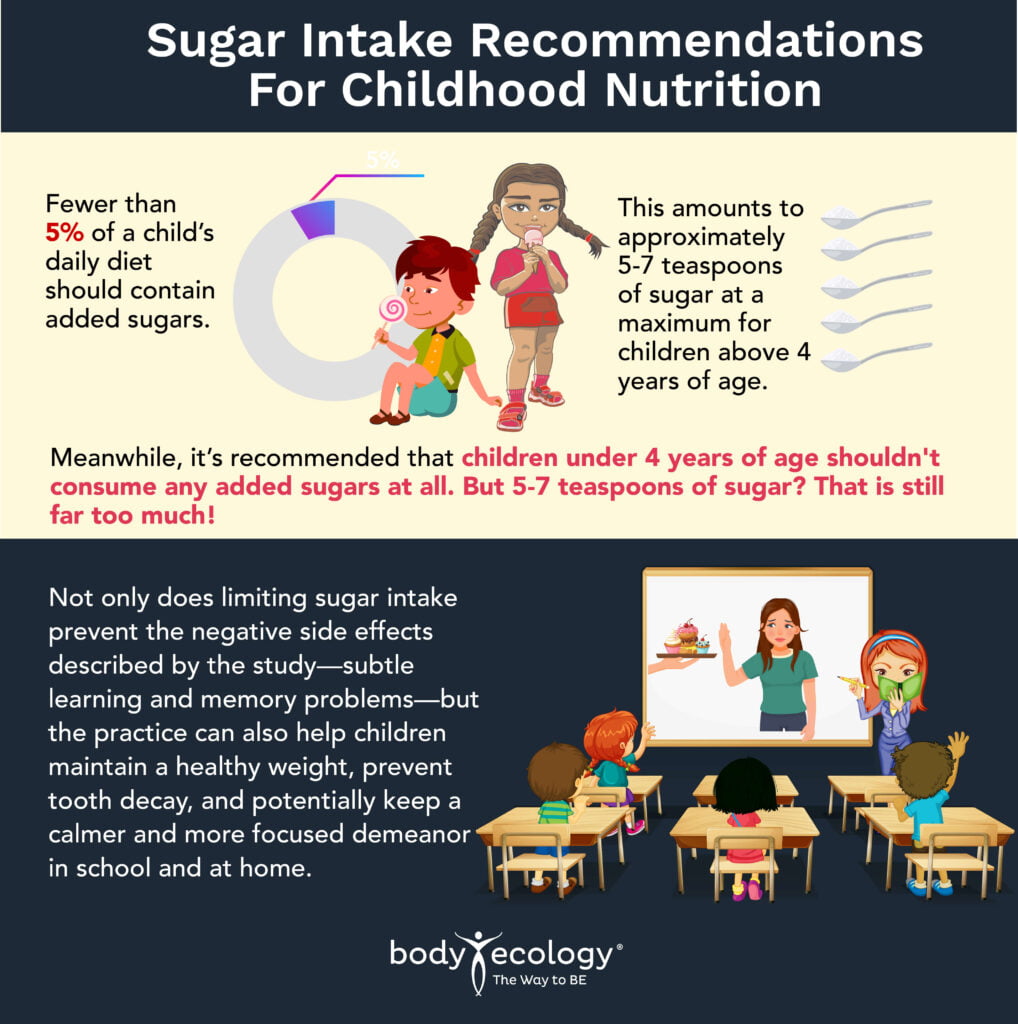
Not only does limiting sugar intake prevent the negative side effects described by the study—subtle learning and memory problems—but the practice can also help children maintain a healthy weight, prevent tooth decay, and potentially keep a calmer and more focused demeanor in school and at home.
We think of sugar as the cause of obesity, but a far greater concern is fatty liver disease. Yes, even our children are now developing a disease that was once thought to be only a problem for alcoholics.
While there is a small amount of wiggle room for the occasional sugary snack, Body Ecology prefers to curb the number of risks–especially in children, who are growing and developing all parts of their body that will support them for the rest of their lives. That’s why the Body Ecology diet specifically recommends avoiding sugar. Sugar feeds candida, viruses and pathogenic bacteria, and millions of babies and children have Candida infections.
As an adult, the occasional sweet may not be too harmful. It certainly is not helpful, but it won’t derail our development like it might in a child. You simply can’t be too careful with the health of your little ones, and we believe that not giving in to their demand for sugar is one of the most loving gestures you can make.
Instead, infuse your child’s diet with healthy proteins and vegetables full of the vitamins and minerals they need to become the healthiest (and happiest) person they can be. And most importantly, teach them why caring about what goes into their body is so important, even if others are eating badly.
Swap Sugar For Probiotics
A diet supplemented with probiotics—even in the very young— helps build the immune system, wards off infection, fights inflammation and helps prevent digestive issues.
Body Ecology has an expertly-formulated powder probiotic scientifically designed to soothe an irritated gut in adults and protect the gut biome of children, along with all of the other benefits associated with probiotic nutrition.
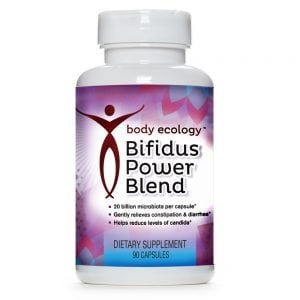 Our Bifidus Power Blend strengthens and replenishes bifidobacteria: healthy bacteria that strengthen your immune health and gastrointestinal system from birth. As a gluten-free nutritional supplement that can simply be added to your child’s diet by mixing it with existing food or beverages, it’s a no-brainer way to ensure your child’s gut health and potentially protect them from illness.
Our Bifidus Power Blend strengthens and replenishes bifidobacteria: healthy bacteria that strengthen your immune health and gastrointestinal system from birth. As a gluten-free nutritional supplement that can simply be added to your child’s diet by mixing it with existing food or beverages, it’s a no-brainer way to ensure your child’s gut health and potentially protect them from illness.
Probiotic foods, like the juice of fermented vegetables, coconut kefir, and a few ounces of a probiotic liquid should be included in your child’s meal. Besides helping to build a healthy, happy gut and a hardier immune system, as they provide a sour taste, and sour dampens the desire for sugar. Our Body Ecology babies are introduced to the juice of cultured vegetables early in life, and they tend to naturally avoid cookies, candies, and other sweets even when offered.
- Young coconut kefir is a wonderful drink that can be easily flavored and has been an important tool for helping children with autism.
- Put a few ounces of Cocobiotic, MojitoBiotic or InnergyBiotic into sparkling mineral water and add fresh lemon or lime juice and your favorite natural sweetener to make a great substitute for a soda.
- Don’t forget to include truly fermented pickles from cucumbers in their lunch boxes or snacks.
Important Takeaways About Childhood Nutrition And Sugar Intake
If you’ve been following The Body Ecology Way, you’re probably already well aware of the dangers of sugar and are limiting it in your child’s diet. So please share this article with others who don’t know. And teach your children the dangers of sugar. The main takeaway here is that there are better ways to make your child smile than to pass them a sugary drink or sweet. Sometimes, the most loving thing we can do as parents is to say no–hard as it may be.
A healthy diet is one of the greatest gifts we can give our loved ones, as it ensures a longer, happier, healthier life.
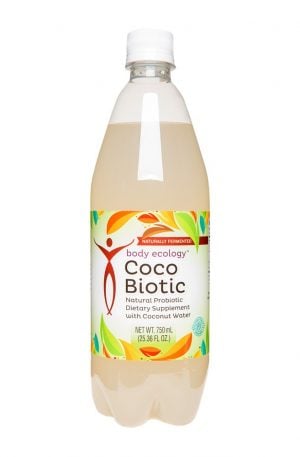 For a simple way to care for your little one’s health (and your teenagers, too) give them a probiotic supplement like our Bifidus Power Blend to ensure the healthy body and mind they deserve. Weave in Probiotic Liquids and if you are willing to make your own fermented foods and drinks, use our starters to make Young Coconut kefir and Cultured vegetables.
For a simple way to care for your little one’s health (and your teenagers, too) give them a probiotic supplement like our Bifidus Power Blend to ensure the healthy body and mind they deserve. Weave in Probiotic Liquids and if you are willing to make your own fermented foods and drinks, use our starters to make Young Coconut kefir and Cultured vegetables.
Fortunately, many companies now make fermented vegetables and truly fermented pickles that you can buy at your health food store and even local supermarkets. Introduce the sour taste into your family’s diet and stop those cravings for sugar.

